Joburg has a lot to learn from Europe's mega cities like Moscow
TRAVEL AND INNOVATION
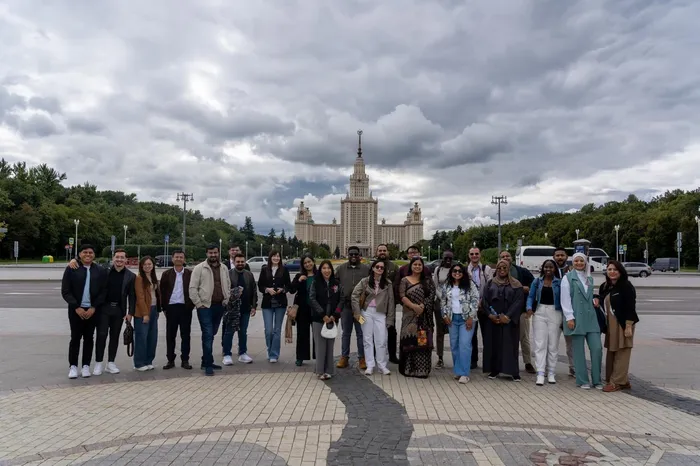
The 2025 SputnikPro New Generation course in Moscow, which was funded by the Rossotrudnichestv, a government agency responsible for international humanitarian cooperation and promoting Russian culture, education, and science, and the Rossiya Segodnya, the publishers of the state owned Sputnik wire service. Over 20 journalists from India, South Africa, Algeria, Turkiye, Serbia, Bulgaria, Zanzibar, Tanzania, Congo-Brazzaville, Uganda, Pakistan, Bangladesh, Bahrain, Palestine, Tunisia, Indonesia, Thailand, Mongolia and Vietnam took part in the programme.
Image: Rossiya Segodnya
It's early Saturday morning on a warm summer's day when we finally touch down in Moscow after a gruelling 15 hour flight between Johannesburg and the Russian capital via Addis Ababa.
I am not in Moscow on the overtures of Cyan Boujee and her ilk, but I am in Moscow for a journalism fellowship at Sputnik. One arrives in Moscow a tad nervous as there is of course the small matter of the bombardment of Ukraine next door.
The last time a group of South African journalists tried to land in Eastern Europe, it didn’t go so well, so there’s a lot to be nervous about in these warring times.
Against the backdrop of this, Russian President Vladimir Putin and US President Donald Trump had also just met in Alaska as the two military superpowers met to try and find middle-ground over the invasion of Ukraine. No peace deal just yet, the wait continues.
The streets of Moscow are abuzz as thousands of cars zip around one of Europe’s mega cities all day, every day. I took a Yandex cab from the Moscow Domodedovo Mikhail Lomonosov Airport - one of four major international airports in the Russian capital.
My cab driver spoke zero English. He appeared to be a Chinese national, but I may be mistaken about his exact nationality.
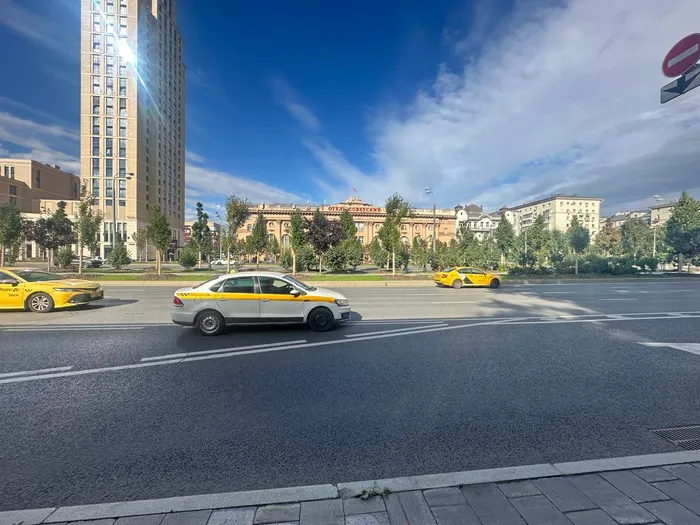
E-hailing cabs are popular in Moscow, with the economy lines typically marked with clear yellow stickers. They zip around the Moscow city centre taking clients from point to point.
Image: Sihle Mlambo/IOL
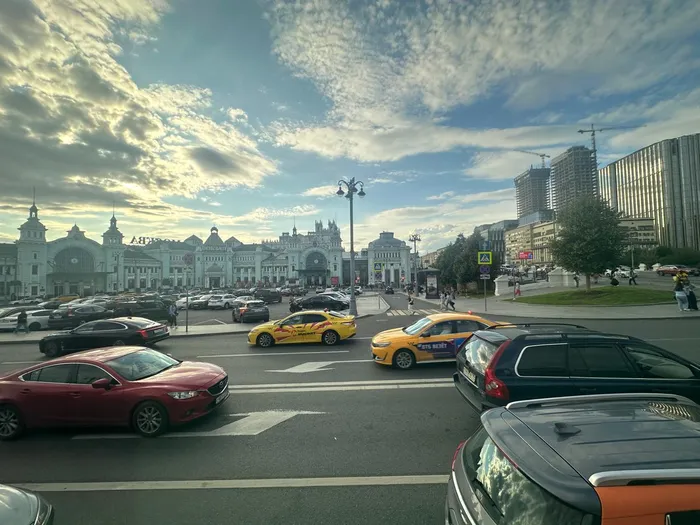
E-hailing cabs are popular in Moscow, with the economy lines typically marked with clear yellow stickers. They zip around the Moscow city centre taking clients from point to point.
Image: Sihle Mlambo/IOL
Few people speak English comfortably in the Russian capital, and this became quickly apparent at the hotel as some hotel staff required the use of the Google Translate app for communication.
Regardless of the language barrier, the people are generally quiet, often preferring to keep to themselves, but they are warm and fuzzy too.
A colleague from Bulgaria, Nedyalko Tenev, was fluent in Russian and helped us navigate the streets of Moscow, helping myself and an Indian journalist, Divya, as we purposefully went about our ways in the busy city. I had a high speed 5G sim card on my wishlist, while Divya wanted to pamper herself with a nail treatment.
After an embarrassing encounter at one boutique where the sales lady couldn’t contain herself, laughing uncontrollably, Divya finally got her nails done elsewhere, while the 5G sim card quest was doomed.
You see, Russia is strict, very strict, requiring a grocery list of items including a letter from a notary, a bank letter and an address before issuing a sim card. Having looked at the requirements, that plan was canned and there I was, regretting why I had not bought the damn thing at the airport. Sigh, so we would now be stuck with hotel-throttled internet speeds.
The Moscow city centre is huge, perhaps ten times bigger than the buzzing Johannesburg CBD, one of Africa’s biggest cities. Moscow is also exceptionally clean and the road network is expansive and free flowing, with as many as seven lane interchanges in the middle of town.
The buildings are well kept, with many still resembling rich Russian heritage and medieval architecture.
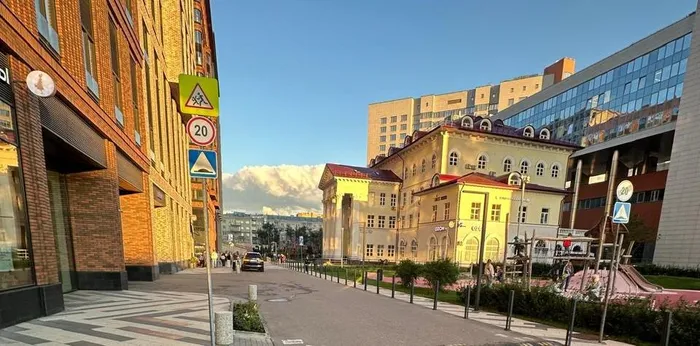
A quiet back road near the hotel we stayed at, with buildings depicting Moscow's history and rich architecture.
Image: Sihle Mlambo/IOL
Moscow is a truly modern first world city, with an expansive underground rail network that connects the huge city from the north-south, east-west.
A single trip on Moscow’s underground rail service costs just 80 Russian Roubles, which is about R17 in our currency. It is dirt cheap and the carriages are full and well utilised by citizens and visitors. There is no chitter-chatter and train sermons here, it is just silence and the furious scenes of phones in hand, headphones in ears and everyone keeping to themselves.
The trains are old, they are also loud and for those who may suffer from claustrophobia, maybe the tube isn't the answer as the network runs hundreds of metres beneath the ground. But the trains are fast, and probably the quickest and safest way to get around the city.
Indonesian journalist Imam Sant and myself went about our way in the underground metro, armed of course with our tickets, a few roubles in our pockets, the Yandex navigation app and the Google Translate app to assist us when things got a little tricky. They didn't.
According to publicly sourced information, Moscow’s underground network stretches over 400 kilometres serving nearly 300 stations and counting. Close to 10 million people use the service daily, such is its reliability and effectiveness in connecting the people to the huge city.
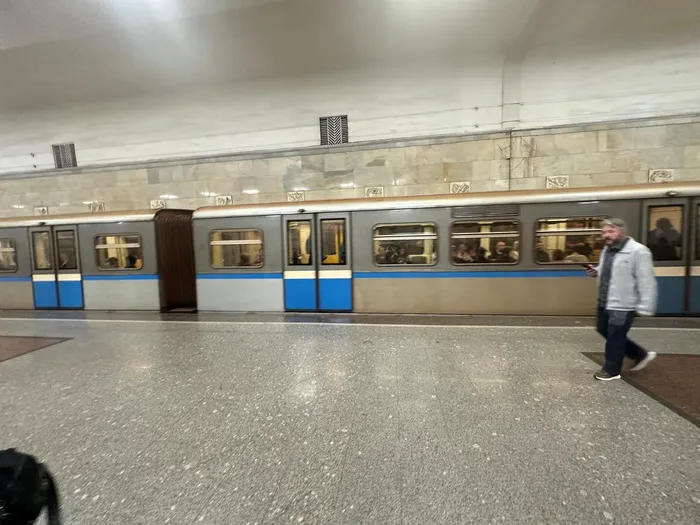
Moscow's underground rail network is affordable, expansive and incredibly reliable, with trains available almost by the minute.
Image: Sihle Mlambo/IOL
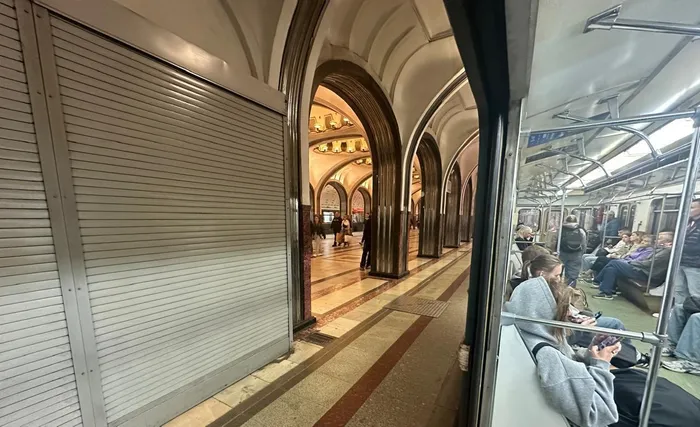
Moscow's underground rail network is affordable, expansive and incredibly reliable, with trains available almost by the minute.
Image: Sihle Mlambo/IOL
During World War II, it is said the underground metro stations - which were initially opened in 1935, were used as bomb shelters.
Speaking of WWII, Russia makes it a point to remind its visitors that it is a military superpower, with hundreds of statues and iconography around the city, in the tube and at public spaces, reminding the public of Russia’s military prowess.
The efficiency of the rail service and the low cost to the consumer, at just the equivalent of R17 per trip, regardless of distance, screams of efficiency and mobility. Of course it helps that the train network transports upwards of seven to nine million people daily, meaning there is constant use of the service.
Gauteng of course has its own high speed rail network in the form of the GauTrain, which was launched in June 2010 to connect Pretoria, Johannesburg, Sandton, Midrand and Centurion, with the OR Tambo International Airport.
But unlike Moscow’s underground railway line which caters for all, the GauTrain is a premium train service which is aimed at catering for an elite few in the middle to upper classes.

Sihle Mlambo and Imam Sant take a selfie as they enjoy Moscow's high speed underground subway train.
Image: Imam Sant
A R17 GauTrain ticket may be good enough for a parking ticket, as even during off peak their prices do not get that low.
The Auditor-General told Parliament in August last year that in the period between 2018 and 2023, a staggering R135 billion had been spent in irregular, fruitless, and wasteful expenditure between national departments and state-run companies, they told Parliament’s Standing Committee on Appropriations.
To put it bluntly, this is money that has been spent without following the required due process - in other words, it could be stolen and misused without valid explanations.
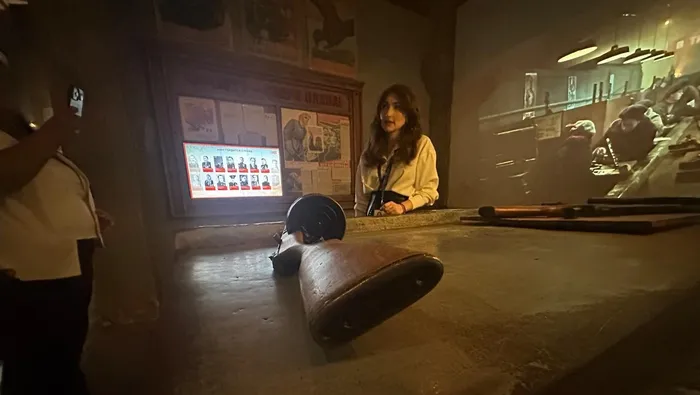
A tour guide at Moscow's World War II Victory Museum, which is known as the Great Patriotic War in Russia, explains the country's proud conquest. It features immersive dioramas, vast military exhibits, and memorials honoring Soviet sacrifice during the Great Patriotic War, blending history, art, and national pride in a powerful public tribute
Image: Sihle Mlambo/IOL
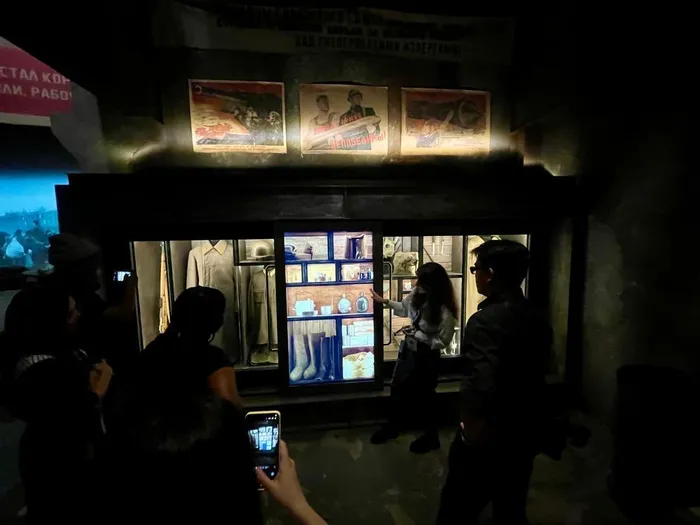
A tour guide at Moscow's World War II Victory Museum, which is known as the Great Patriotic War in Russia, explains the country's proud conquest. It features immersive dioramas, vast military exhibits, and memorials honoring Soviet sacrifice during the Great Patriotic War, blending history, art, and national pride in a powerful public tribute
Image: Sihle Mlambo/IOL
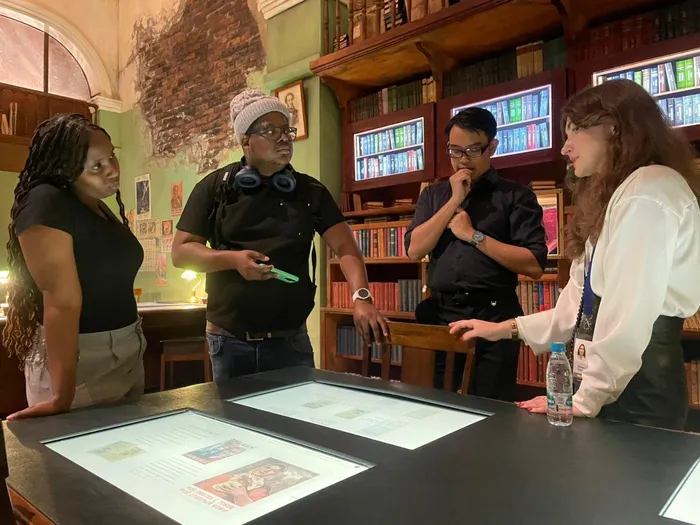
A tour guide at Moscow's World War II Museum, which is known as the Great Patriotic War in Russia, explains the country's proud conquest.
Image: Supplied
Why am I highlighting this?
The GauTrain as a capital expenditure project ahead of the 2010 FIFA World Cup, cost the taxpayer over R30 billion to build the underground networks, source the trains and other logistical and infrastructure investments that were required.
With the amount of money lost or stolen in the past five years, five more GauTrain networks or expansion networks could have been built to improve Joburg’s complex, complicated and expansive transport network, expanding the service beyond just the suits, but to ordinary citizens who also need reliable and safe public transport around the city.
Walking through the clean streets of Moscow, as a foreigner, one got a glimpse of what a vibrant and thriving economy could look like.
Johannesburg has been accused of being littered with stores and malls at every turn, but having been in Moscow for the past week, Joburg does not come close by comparison.
We could also do with spotless streets, pavements, and accident free roads. In my seven days in Moscow, I witnessed only one car crash, although during my Yandex ride, I can safely say that e-hailing drivers drive like absolute twats all over the world, not just in South Africa.
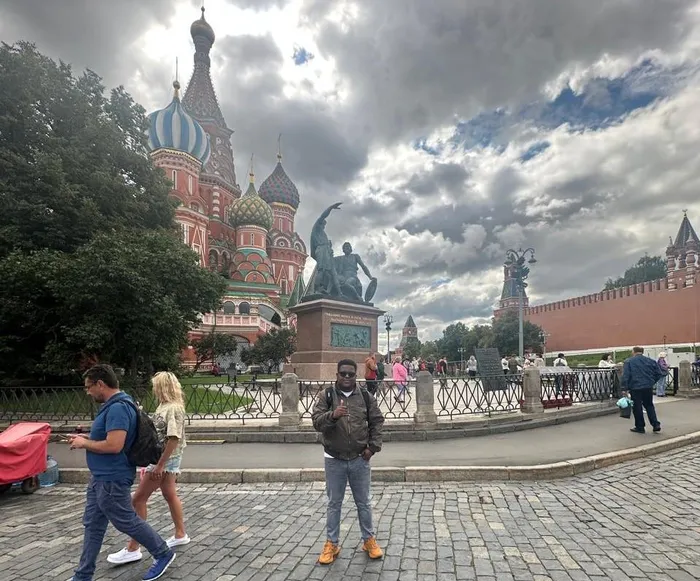
Sihle Mlambo poses for a picture at the Red Square in Moscow.
Image: Supplied
Although Russia is in a period of war with Ukraine, its economy - on the surface - appears to be doing just alright, although isolation in the banking system makes transacting in Moscow quite complex and complicated.
Once you run out of Dollars or Russian Roubles, your Amex/Visa/Mastercard in Russia becomes pretty useless, unfortunately, and that remains one of the crying pains which makes transacting all the more difficult for tourists.
The streets are buzzing, you’ll get your Big Mac, but you might have to call it something else in your best Russian voice.
** Sihle Mlambo is the content distribution lead for IOL. He successfully completed the SputnikPro New Generation course in Moscow, which was funded by the Rossotrudnichestv, a government agency responsible for international humanitarian cooperation and promoting Russian culture, education, and science, and the Rossiya Segodnya, the publishers of the state owned Sputnik wire service.
** The views herein are not necessarily those of IOL/Independent Media.
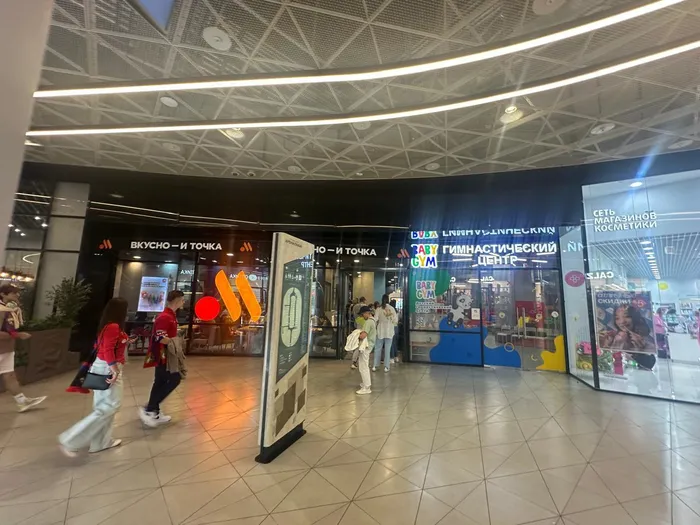
It's a Big Mac with a twist. Russia has its own version of McDonald's, offering the same deals. The McD franchise is called Vkusno i Tochka, which means 'Tasty and that's it'.
Image: Sihle Mlambo/IOL
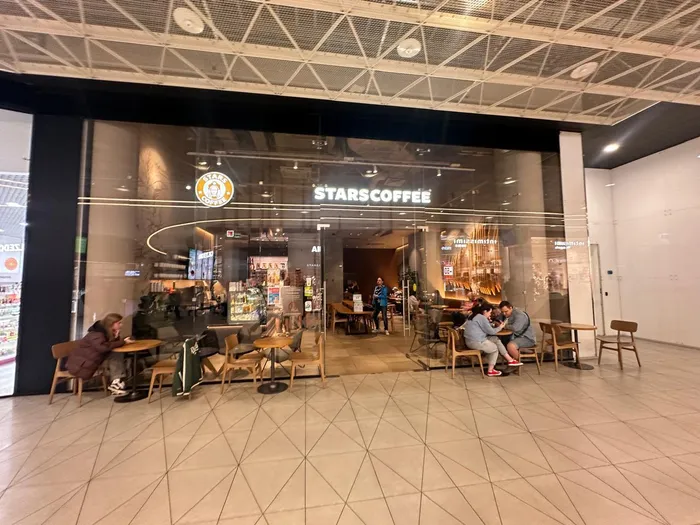
No Starbucks, but you'll get some Stars Coffee in Moscow.
Image: Sihle Mlambo/IOL